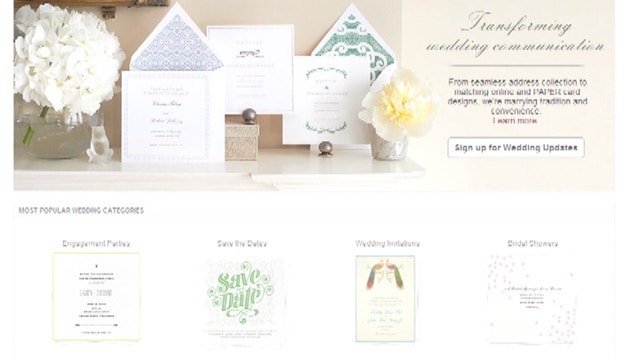Paperless Post’s Alexa Hirschfeld: Tech Founder First, Woman Second
It’s the story of two siblings, three offices quickly outgrown, and more than 85 million invites sent and received.
And Paperless Post’s stats are rapidly climbing, as the company started by brother-sister team Alexa and James Hirschfeld in 2009 continues to expand. The online stationary startup plans to hire 76 new employees over the next three years, and recently won a $250,000 grant from the New York City Economic Development Corporation to expand in NYC’s silicon alley.
The latest move for the startup, which has raised more than $12 million in funding, is offering actual paper products to its customers to order off the Web. Hirschfeld says although the original platform was based on the idea of electronic communication, the user base has spoken and inspired them to branch out.
“The same people who like to send online invitations also like to use actual paper,” she says. “They are design-focused and about customization.”
The feature also connects to a users’ online account, meaning e-mail reminders can be sent to guests who fail to RSVP, with coordinating designs.
“There is a tracking page where you can manage people and see who is coming and who isn’t,” she says. “You don’t have to mass e-mail people, or harass them with text reminders. About 60% of our users asked for it, and it’s doing really well.”
Paperless Post is still working with designer partners like Jonathan Adler, Kate Spade, The New Yorker and Oscar De la Renta on stationary lines, Hirschfeld said.
But why pay for the service the Hirschfelds offer, when consumers can do the same thing for free on sites like Evite and even on Facebook? Their customer is more design-conscious and likely using them for a formal event like a wedding or shower, she says. The same customer who would typically buy paper stationary turns to the site, with both free offerings and invites that range in price per recipient.
“It’s still a lot less expensive than paper and a lot less time,” she says. “That’s why people use us, and it’s not a hard sell. For paper, they can use other paper companies, but they don’t have this online management aspect. It’s the DNA of the company where we started, and what we are good at—it's an online tool.”
Hirschfeld, may be young and petite, but she says she’s been lucky to escape sexism in the tech sector thus far in her career.
“I have been able to enjoy the strides that others have made before me,” she says. “I don’t want to scoff at the idea that there was sexism, but I don’t wake up in the morning and think, ‘I am a woman in tech.’ I just go to work, and my work is in technology. There are challenging days—but I’d tell people they should really do what they are interested in and not think about their gender.”
And what’s it really like working alongside her baby brother? No rivalry here, she says.
“It’s a pleasure. It sort of takes away the barriers you normally have in communication, with those you run companies with,” she says. “When you aren’t trying to manage that, the communication happens very quickly.”
But in the startup world, everything is fast-paced, Hirschfeld says. Including her own growth as a company-runner.
“The biggest challenge is to stay focused. It’s to have the discipline when there are so many competing things,” she says. “You have to grow faster than the pace of your company,” she says of being “young and at the helm.”




















